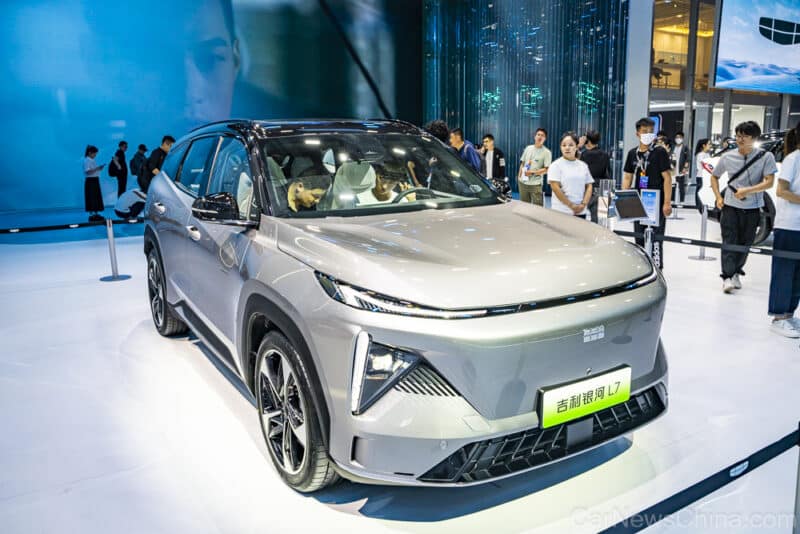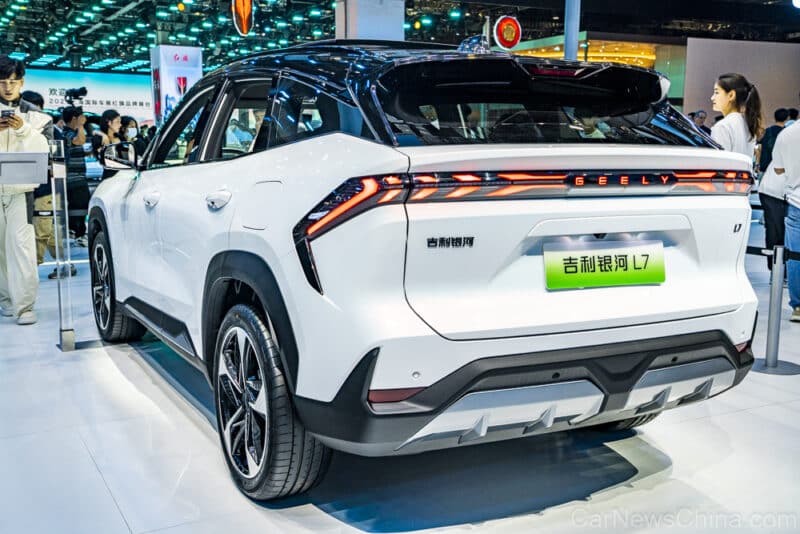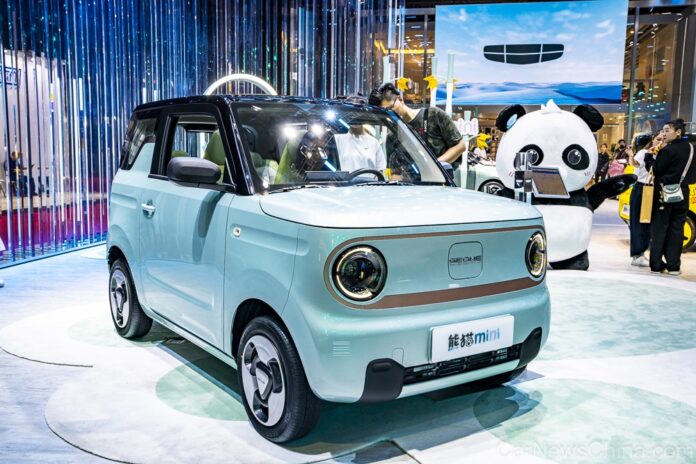For the first time in October, Geely sold more than 100,000 NEVs in a month. Of course, this is not up to BYD’s level of just over half a million, but it shows that Geely is rapidly becoming a force to be reckoned with in the NEV market.
Geely’s NEV sales in October were 108,722, which represents a 19% month-on-month increase and, more tellingly, an 83% year-on-year increase. Furthermore, cumulative sales for NEVs from January to October were 654,576, meaning that Geely should see sales of around 900,000 for the full year.
Surprisingly, the largest contribution to the total, 63,492 units in October, comes from the Geely Galaxy series, which only debuted last year and consists of both EVs and PHEVs.


Geely recently unveiled its new NordThor 2.0 PHEV system, also known as EM-i, which will be used in the forthcoming Galaxy Starship 7 and the Galaxy L6 sedan. It consists of an ICE with the world’s highest thermal efficiency rate of 46.5% and an 11-in-1 electric drive. The NordThor 2.0 offers a mixed range of 2,390 km and a fuel consumption of 2.67 l/100km.
In August this year, Geely launched the Galaxy E5 electric SUV, which debuted Geely’s new generation Aegis short blade lithium iron phosphate batteries. The car went on to sell over 12,000 in its first 20 days on sale.
Zeekr delivered 25,049 vehicles in October. Sales should accelerate over the coming months, due the recent launch of both the Mix and the 7X. Currently Zeekr only sells all-electric cars.
Meanwhile, Lynk & Co sold 19,992 vehicles in October. In the past, the brand’s only NEV offerings were PHEVs using the more performance-oriented EM-P version of the NordThor powertrain. Earlier this year, the brand launched the Z10 sedan, its first fully electric model. In October, the brand debuted its second fully electric car, the Z20, in Europe.
Geely also launched the Geome Xingyuan in September. As of October 27, more than 11,500 had been delivered, and around the middle of October, it was reported that orders had exceeded 50,000.
Source: Fast Technology,


